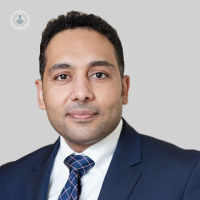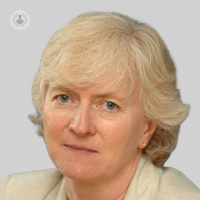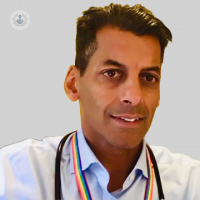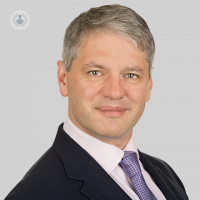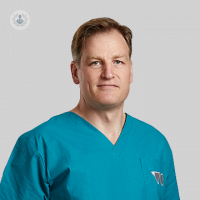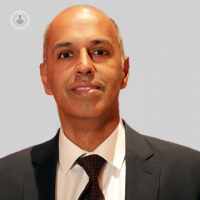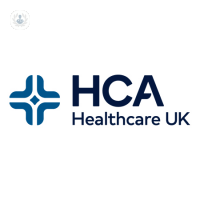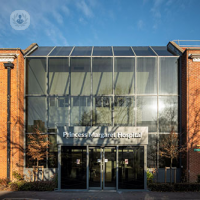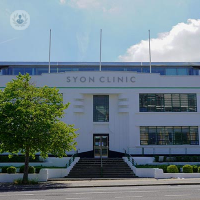What is varicose veins surgery?
While more modern procedures such as sclerotherapy and ablation are generally favoured these days for the treatment of varicose veins, surgery is still an option in some cases. This type of surgery is usually called ‘ligation and stripping’. Varicose vein surgery is often carried out under general anaesthetic (which means you will not be conscious during the procedure).

Why is it done?
Varicose veins are often considered to be an aesthetic problem, but they can also cause pain and discomfort. Treatment is often advised by a doctor if varicose veins are uncomfortable and painful, or if they are related to other complications such as leg ulcers or discolouration in the skin. They can also be treated for cosmetic reasons, generally in a private clinic.
What does it involve?
Varicose vein surgery, or ‘ligation and stripping’ first consists of tying the vein in the leg, by making two small incisions in the leg. After these two incisions are made, the varicose vein is tied and sealed, and is then removed. Surgery usually takes around two to three hours, but you can generally go home after the procedure has been performed, after a short rest period in the clinic or hospital.
How do you prepare for varicose veins surgery?
You will first discuss treatment for varicose veins with a specialist to check that you are eligible for surgical treatment. Your specialist will advise you on any precautions you may need to take before the procedure, such as advising on medication you will not be able to take. You should ask your surgeon if you will need to stay overnight in hospital, which is not common, but occurs in some cases. Additionally, it is important to check with your surgeon who will be performing the procedure and ask any questions you have about the procedure beforehand.
Aftercare
After the surgery, you will most likely have to wear compression stockings for a few days, or for up to a week. You will need to rest and elevate your leg whenever possible. Follow the advice provided by your surgeon. Generally, you will need some time off work to properly recover. This depends on the work which you do, and your health in general. Check with your surgeon when you will be able to return to work.
Alternatives to this treatment
Varicose veins can also be treated through foam sclerotherapy, radiofrequency ablation, and endovenous laser treatment.
07-17-2014 10-17-2023Varicose veins surgery
Mr Hosaam Nasr - Vascular surgery
Created on: 07-17-2014
Updated on: 10-17-2023
Edited by: Aoife Maguire
What is varicose veins surgery?
While more modern procedures such as sclerotherapy and ablation are generally favoured these days for the treatment of varicose veins, surgery is still an option in some cases. This type of surgery is usually called ‘ligation and stripping’. Varicose vein surgery is often carried out under general anaesthetic (which means you will not be conscious during the procedure).

Why is it done?
Varicose veins are often considered to be an aesthetic problem, but they can also cause pain and discomfort. Treatment is often advised by a doctor if varicose veins are uncomfortable and painful, or if they are related to other complications such as leg ulcers or discolouration in the skin. They can also be treated for cosmetic reasons, generally in a private clinic.
What does it involve?
Varicose vein surgery, or ‘ligation and stripping’ first consists of tying the vein in the leg, by making two small incisions in the leg. After these two incisions are made, the varicose vein is tied and sealed, and is then removed. Surgery usually takes around two to three hours, but you can generally go home after the procedure has been performed, after a short rest period in the clinic or hospital.
How do you prepare for varicose veins surgery?
You will first discuss treatment for varicose veins with a specialist to check that you are eligible for surgical treatment. Your specialist will advise you on any precautions you may need to take before the procedure, such as advising on medication you will not be able to take. You should ask your surgeon if you will need to stay overnight in hospital, which is not common, but occurs in some cases. Additionally, it is important to check with your surgeon who will be performing the procedure and ask any questions you have about the procedure beforehand.
Aftercare
After the surgery, you will most likely have to wear compression stockings for a few days, or for up to a week. You will need to rest and elevate your leg whenever possible. Follow the advice provided by your surgeon. Generally, you will need some time off work to properly recover. This depends on the work which you do, and your health in general. Check with your surgeon when you will be able to return to work.
Alternatives to this treatment
Varicose veins can also be treated through foam sclerotherapy, radiofrequency ablation, and endovenous laser treatment.


Varicose vein treatment: 3 reasons why treatment fails
By Dr Omar Abu-Bakr
2025-01-20
Varicose veins, swollen veins which are dark blue or purple in colour, can affect people's confidence and make them self-conscious. Treatment is widely available but unfortunately is not always successful and can leads to recurrence of the varicose veins. In this article, renowned consultant venous surgeon, Dr Omar Abu-Bakr explains why this can occur and what patients can expect from high quality varicose vein treatment. See more


A comprehensive overview of keyhole surgery procedures for varicose veins
By Mr Iraj Zeynali
2025-01-20
Common keyhole procedures which are used for varicose veins include endovenous laser ablation (EVLA), radiofrequency ablation (RFA) and foam sclerotherapy. The purpose of each of these procedures is to shut off the diseased veins and thus redirect blood flow to healthy veins. Highly esteemed consultant vascular surgeon Mr Iraj Zeynali explains everything you need to know about keyhole procedures for varicose veins. See more
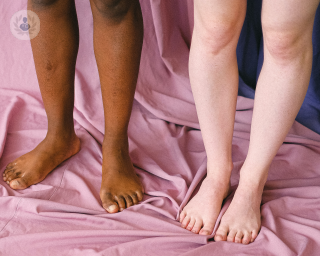

What to expect during endovenous ablation of varicose veins
By Dr Omar Abu-Bakr
2025-01-20
How does endovenous ablation treatment remove varicose veins? We spoke to Mr Omar Abu-Bakr, a top consultant venous surgeon, who explained how this procedure works and what to expect when you go in for your appointment. See more


Is varicose vein surgery worth it?
By Mr Girish Girish
2025-01-20
Varicose veins are swollen, twisted veins that commonly occur in the legs due to weakened or damaged valves within the veins, causing blood to pool rather than flow efficiently back to the heart. Many people with varicose veins consider surgery to alleviate symptoms and improve leg appearance, but the decision to proceed with surgery depends on individual circumstances. See more
Experts in Varicose veins surgery
-
Ms Sophie Renton
Vascular surgeryExpert in:
- Diabetic foot
- Venous ulcer
- Peripheral arterial disease
- Varicose veins
- Varicose veins surgery
- Carotid endarterectomy
-
Mr Sudip Ray
Vascular surgeryExpert in:
- Varicose veins
- Deep vein thrombosis (DVT)
- Minimally invasive artery surgery
- Peripheral arterial disease
- Varicose veins surgery
- Foam sclerotherapy
-
Professor Mark Whiteley
Vascular surgeryExpert in:
- Foam sclerotherapy
- Pelvic congestion syndrome
- Spider veins (thread veins)
- Endovenous laser treatment (EVLA)
- Phlebectomy
- Varicose veins surgery
-
Professor Stephen Black
Vascular surgeryExpert in:
- Deep vein thrombosis (DVT)
- May-Thurner syndrome
- Post-thrombotic syndrome
- Varicose veins
- Spider veins (thread veins)
- Varicose veins surgery
-
Mr Manj Gohel
Vascular surgeryExpert in:
- Varicose veins surgery
- Deep vein thrombosis (DVT)
- Leg ulcers
- Swollen legs
- Post-thrombotic syndrome
- Varicose veins
- See all

The Lister Hospital - part of HCA Healthcare
The Lister Hospital - part of HCA Healthcare
Chelsea Bridge Road, London
No existe teléfono en el centro.
By using the telephone number provided by TOP DOCTORS, you automatically agree to let us use your phone number for statistical and commercial purposes. For further information, read our Privacy Policy
Top Doctors

The Princess Margaret Hospital - part of Circle Health Group
The Princess Margaret Hospital - part of Circle Health Group
Osborne Rd, Windsor SL4 3SJ
No existe teléfono en el centro.
By using the telephone number provided by TOP DOCTORS, you automatically agree to let us use your phone number for statistical and commercial purposes. For further information, read our Privacy Policy
Top Doctors

Syon Clinic - part of Circle Health Group
Syon Clinic - part of Circle Health Group
941 Great West Rd, Brentford TW8 9DU
No existe teléfono en el centro.
By using the telephone number provided by TOP DOCTORS, you automatically agree to let us use your phone number for statistical and commercial purposes. For further information, read our Privacy Policy
Top Doctors
-
The Lister Hospital - part of HCA Healthcare
Chelsea Bridge Road, London , Central LondonExpert in:
- Cancer
- Cardiology
- Orthopaedic surgery
- Pregnancy
- Physiotherapy
- Women’s health
-
The Princess Margaret Hospital - part of Circle Health Group
Osborne Rd, Windsor SL4 3SJ, WindsorExpert in:
- Brachytherapy
- Cardiology
- General Surgery
- Orthopaedic surgery
- Robotic Surgery
- Dermatology
-
Syon Clinic - part of Circle Health Group
941 Great West Rd, Brentford TW8 9DU, West LondonExpert in:
- Allergies nose and ears
- Allergy Dermatitis
- Allergy
- Clinical analysis
- Anxiety
- Digestive
- See all
- Most viewed diseases, medical tests, and treatments
- Weight loss injections
- Nipple discharge
- Abdominal pain
- Endovenous laser treatment (EVLA)
- Minimal access surgery (keyhole surgery)
- Head and neck cancer
- Neck lump
- Bariatric surgery
- Acellular dermal matrix (ADM)
- Prepectoral breast reconstruction
